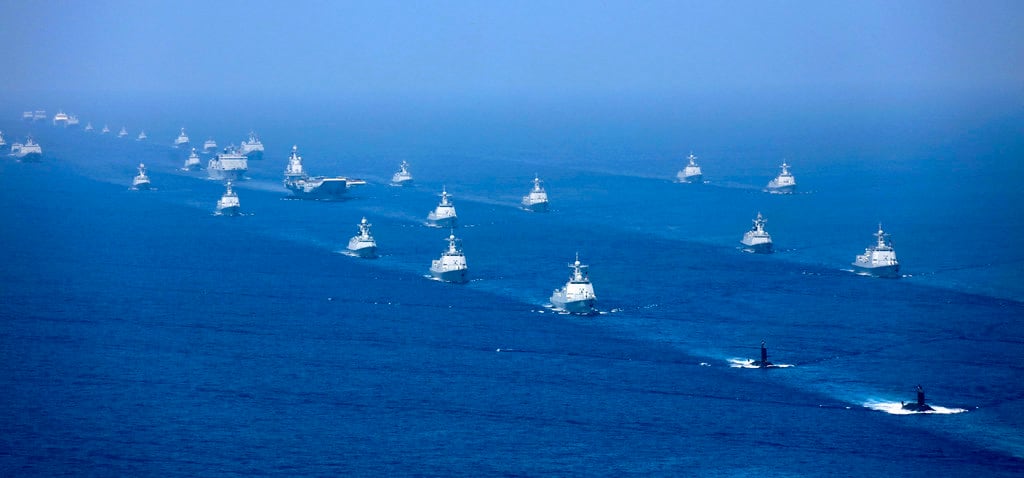Here’s a weekly look at recent developments in the South China Sea, where China is pitted against smaller neighbors in multiple disputes over islands, coral reefs and lagoons in waters crucial for global commerce and rich in fish and potential oil and gas reserves.
CHINA HOLDING NAVAL DRILLS IN SOUTH CHINA SEA
China is holding military exercises across a broad swath of the South China Sea, reinforcing its claim to virtually the entire strategic waterway.
A notice from the Maritime Safety Administration gave few details other than saying the exercises would be held square in the middle of the crucial waterway and would end on Wednesday. It gave the location of the drills as between the contested Paracel and Spratly island groups, where Vietnam, the Philippines and others claim territory.
China’s navy, coast guard and maritime militia are a constant presence in the region and it staged a massive fleet review in the area last year featuring its sole operating aircraft carrier, the Liaoning.
China considers control of the South China Sea as crucial to its foreign trade routes and aspirations to surpass the U.S. as the dominant military power in the Asia-Pacific region.
It has placed advanced weapons systems on several disputed features in the region, including on seven islands it built by piling sand and concrete on top of coral atolls. Some of those are now equipped with harbors, airstrips, radar and missile stations, expanding China’s ability to monitor and potentially control activity by other military forces in the region.

US CONGRESSMEN MOVE TO SANCTION ENTITIES BACKING CHINA SEA CLAIMS
U.S. congressmen have introduced legislation that would sanction companies or individuals that support China's claims in the contested South and East China seas.
The bill, introduced by representatives Mike Gallagher of Wisconsin and Jimmy Panetta of California, maintains that unimpeded access to those waterways is crucial to global security and international commerce.
"Through its illegitimate efforts to build and militarize islands in the region, the Chinese Communist Party has aggressively attempted to control these critical waterways and undermined international law," Gallagher was quoted as saying in a news release. "This legislation makes clear that any individual or entity supporting these illegal actions will be held accountable."
Panetta said the U.S. would "continue to oppose the militarization" of the South and East China seas.
"Blatant violations of international law must be confronted," he said.
Along with imposing sanctions on individuals and entities who aid the construction or development of islands in the region, the legislation would "restrict foreign assistance to countries that recognize China's sovereignty over the South and East China Seas."
It was not immediately clear when a vote on the measure would be scheduled.
RELATED

CHINA BUZZES CANADIAN NAVAL SHIPS
China’s naval and coast guard ships shadowed a pair of Canadian naval vessels through the South China Sea and Chinese fighter jets buzzed them as they passed east of Shanghai on a mission to monitor illicit trade with North Korea.
The Canadian defense department said the frigate Regina and the navy’s interim resupply ship MV Asterix arrived in the East China Sea after traveling through international waters from Vietnam.
They were on a mission to monitor activity off the coast of North Korea to ensure the enforcement of United Nations sanctions aimed at compelling Pyongyang to end its nuclear weapons programs.
The Canadian ships also passed through the Taiwan Strait that divides mainland China from Taiwan, the self-governing island it claims as its own territory. China's defense ministry said it monitored the passage of the ships but gave no information about any other actions taken.
The Canadian defense department confirmed the flypast in an emailed statement, saying the incident “was not provocative, hazardous, or unexpected.”




